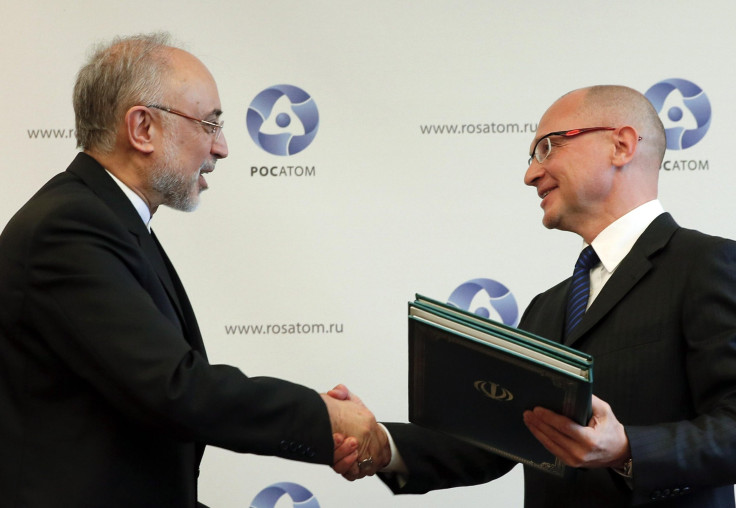Russia Signs Deal To Build Nuclear Reactors In Iran

With less than two weeks left for a deadline to reach a lasting nuclear deal between Iran and six world powers, Russia, which is a part of the P5+1 group participating in the ongoing talks, signed a contract on Tuesday to initially build two nuclear plants in Iran, according to media reports.
The agreement between Rosatom, Russia’s state-controlled nuclear power company, and the Atomic Energy Organization of Iran also has provisions to build six more nuclear reactors in the future. Four of the nuclear reactors will be built at the Bushehr power plant, which became operational in 2013 and is Iran's first Russia-built nuclear plant. Four more will be built in an undetermined location, according to media reports. However, the value of the contract was not disclosed.
“It's a turning point in the development of relations between our countries,” Ali Akbar Salehi, Iran's nuclear program chief, reportedly said, after the contract was signed.
“The entire construction project of the nuclear power units in Iran, including equipment and nuclear fuel supplies, will be under the IAEA safeguards and fully meet the nuclear nonproliferation regime,” Rosatom said, in a statement released Tuesday. “Under the Protocol, nuclear fuel for the NPPs (Nuclear Power Plants) will be fabricated by the Russian party throughout the entire lifecycle of eight new power units. Spent nuclear fuel will be returned to Russia for reprocessing and storage.”
Although Tuesday’s deal, which comes amid a flurry of meetings between Iran and the P5+1 nations -- U.S., U.K., Russia, China, France and Germany -- has no direct link to the ongoing nuclear negotiations, it signals Moscow’s intentions to expand its influence in Iran, ahead of a possible softening of Western sanctions.
Meanwhile, the negotiations, which have been described by the U.S. as “tough, direct and serious,” have so far failed to achieve a breakthrough, according to media reports. The final round of talks is scheduled to begin in Vienna on Nov. 18 in a last-ditch effort to hammer out a deal before the Nov. 24 deadline.
© Copyright IBTimes 2025. All rights reserved.






















